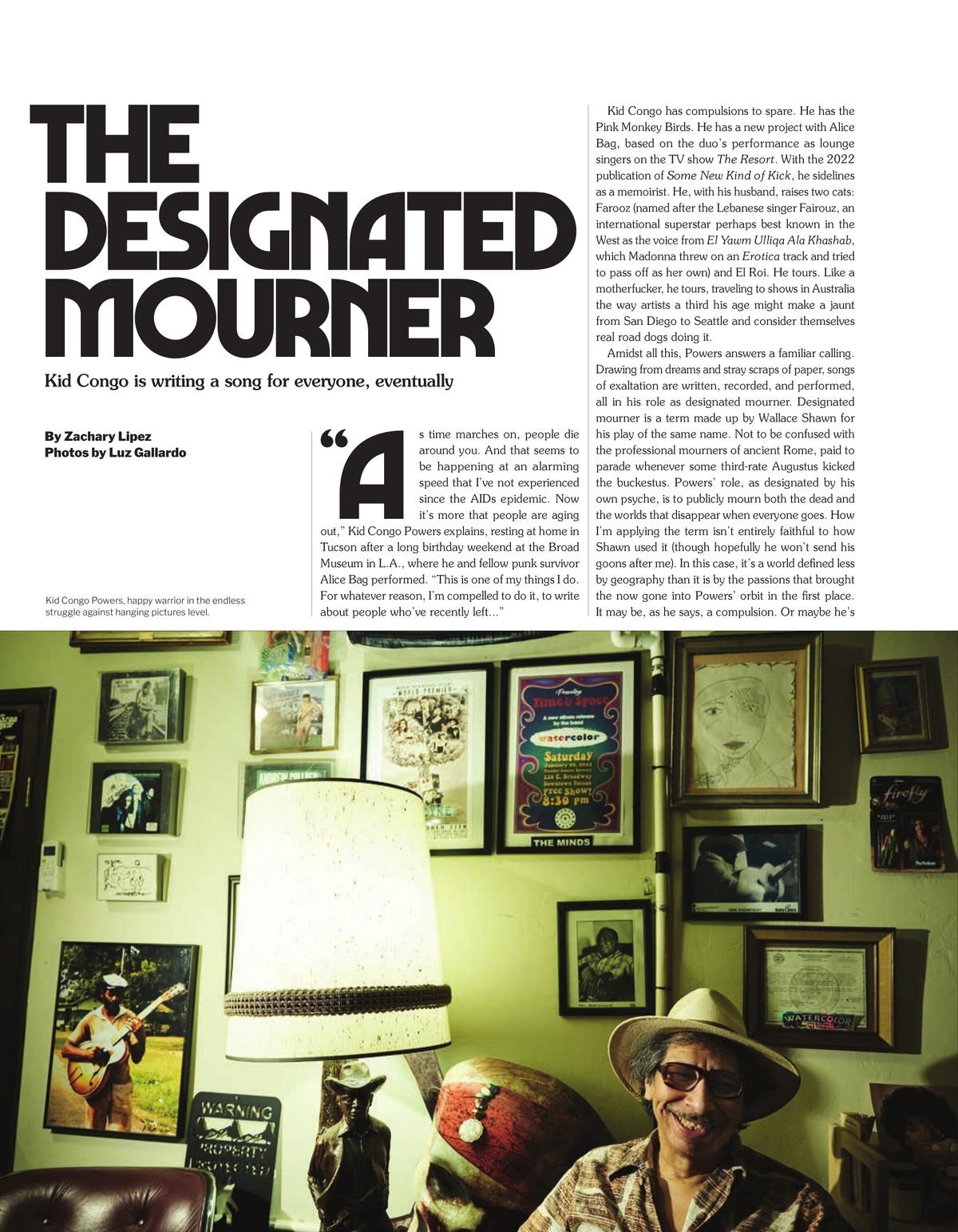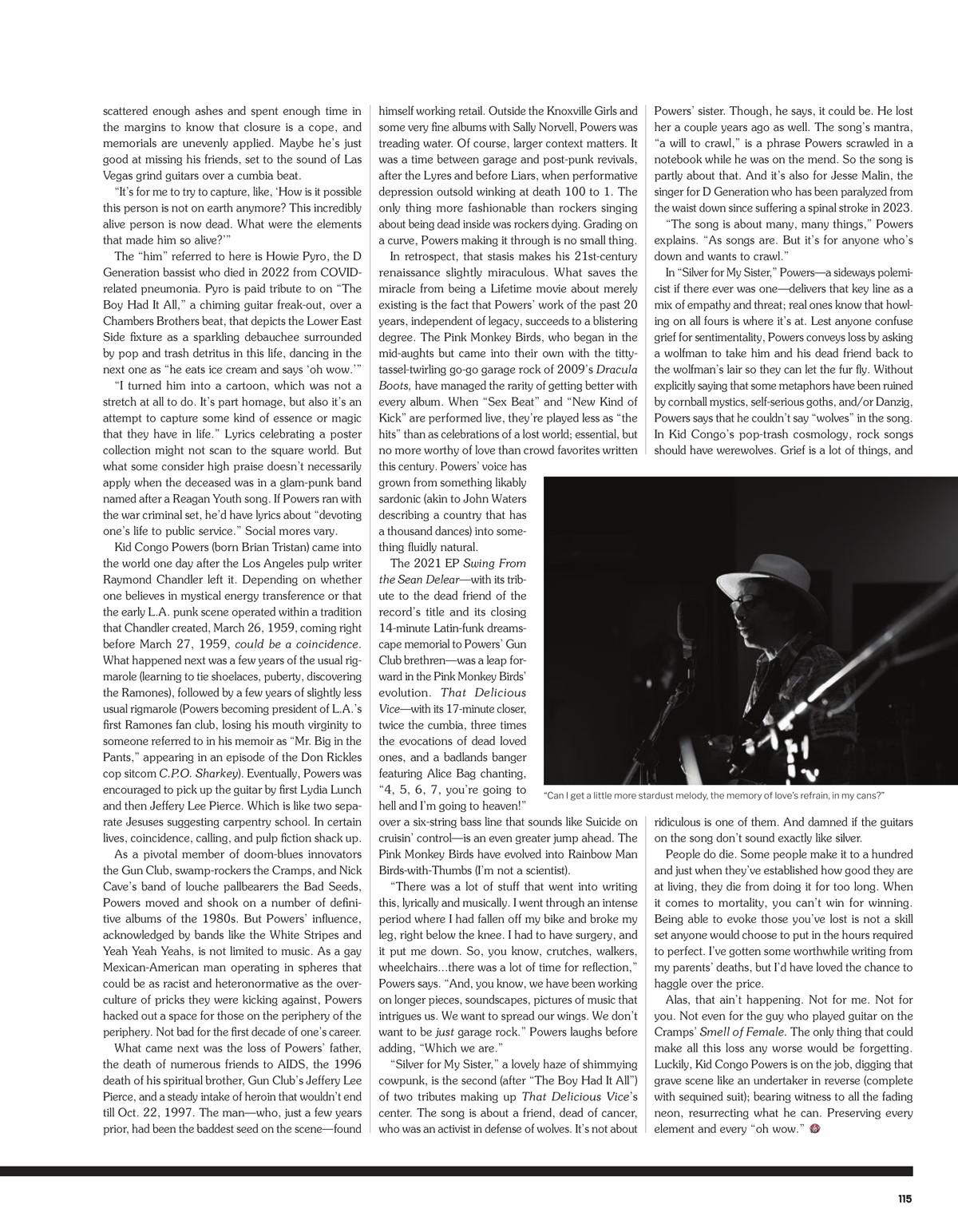THE DESIGNATED MOURNER
"As time marches on, people die around you. And that seems to be happening at an alarming speed that I’ve not experienced since the AIDs epidemic. Now it’s more that people are aging out,” Kid Congo Powers explains, resting at home in Tucson after a long birthday weekend at the Broad Museum in L.A., where he and fellow punk survivor Alice Bag performed.
June 1, 2024


Loading...

